17 Legendary Non-American Celebrities Who Defined the 1970s
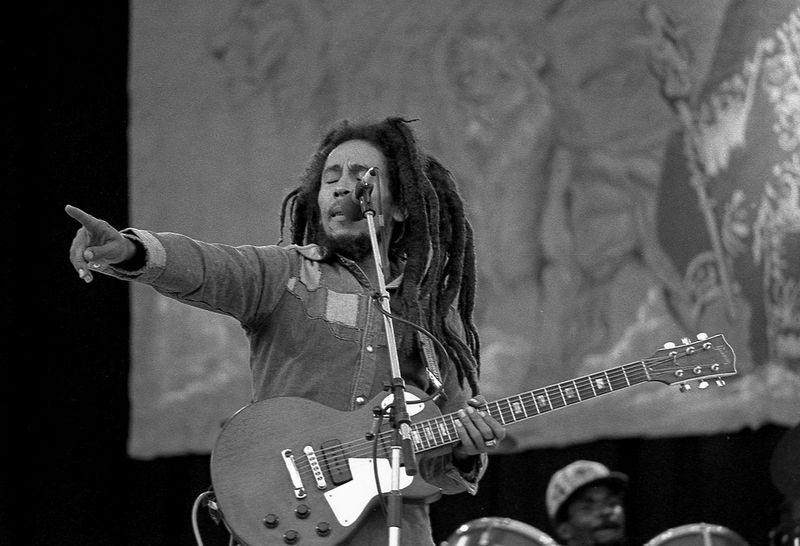
The 1970s brought us more than disco balls and bell-bottoms—it gave us extraordinary talent from around the globe. While American stars often dominate our memories of this colorful decade, countless international celebrities shaped entertainment, sports, and culture worldwide. These non-American icons broke barriers, set records, and created legacies that continue to influence us today. Let’s celebrate these remarkable individuals who made the 1970s truly unforgettable beyond American borders.
1. David Bowie – The Chameleon of Rock
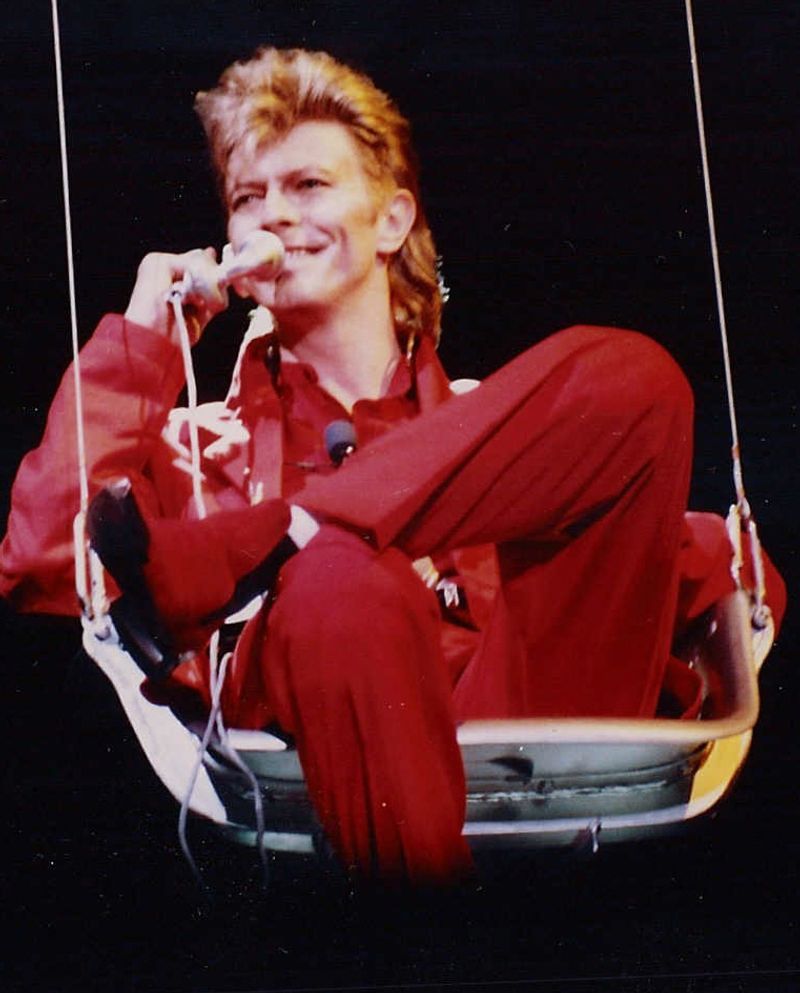
Constantly reinventing himself, this British musical genius transformed from Ziggy Stardust to the Thin White Duke throughout the decade. Bowie’s experimental sound and androgynous appearance challenged conventional notions of gender and performance.
His 1972 album “The Rise and Fall of Ziggy Stardust and the Spiders from Mars” became the soundtrack for a generation seeking identity. Meanwhile, his Berlin trilogy with Brian Eno pushed musical boundaries further than ever before.
Beyond music, Bowie’s acting career blossomed with his haunting performance in 1976’s “The Man Who Fell to Earth,” cementing his status as a true renaissance artist of the 70s.
2. ABBA – Sweden’s Pop Sensation
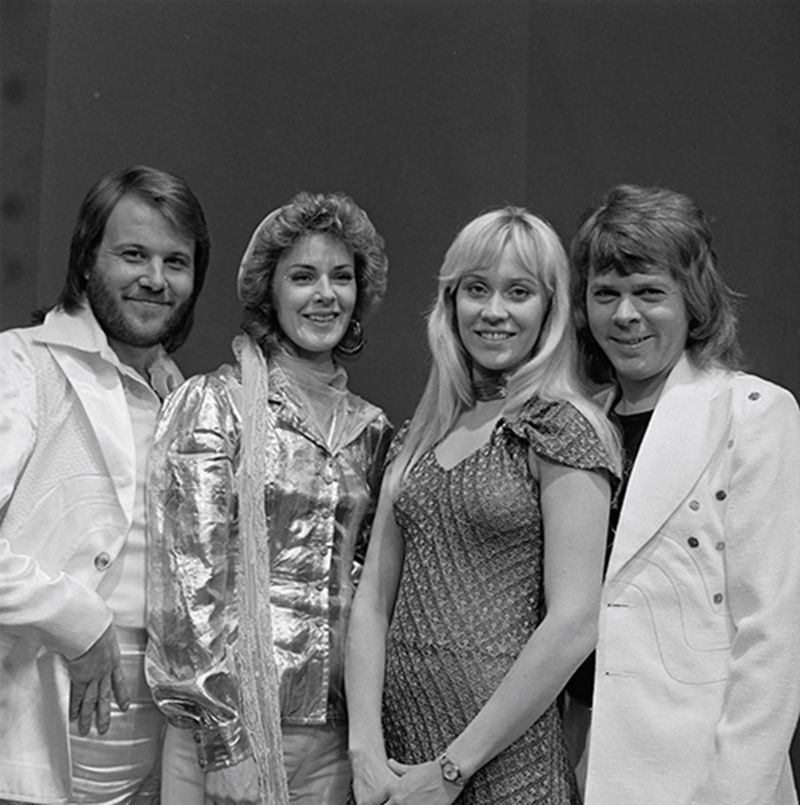
Four talented Swedes revolutionized pop music after winning Eurovision in 1974 with “Waterloo.” Agnetha, Björn, Benny, and Anni-Frid crafted irresistible melodies that conquered global charts despite English not being their first language.
Their catchy choruses became inescapable anthems—from “Dancing Queen” to “Mamma Mia”—while their glittering costumes defined 70s fashion excess. Behind the sequins and platform boots, ABBA’s sophisticated songwriting showcased exceptional musical craftsmanship.
The group’s personal dynamics added drama to their story, with both married couples in the band divorcing during their career yet continuing to create unforgettable music together.
3. Bruce Lee – Martial Arts Revolutionary
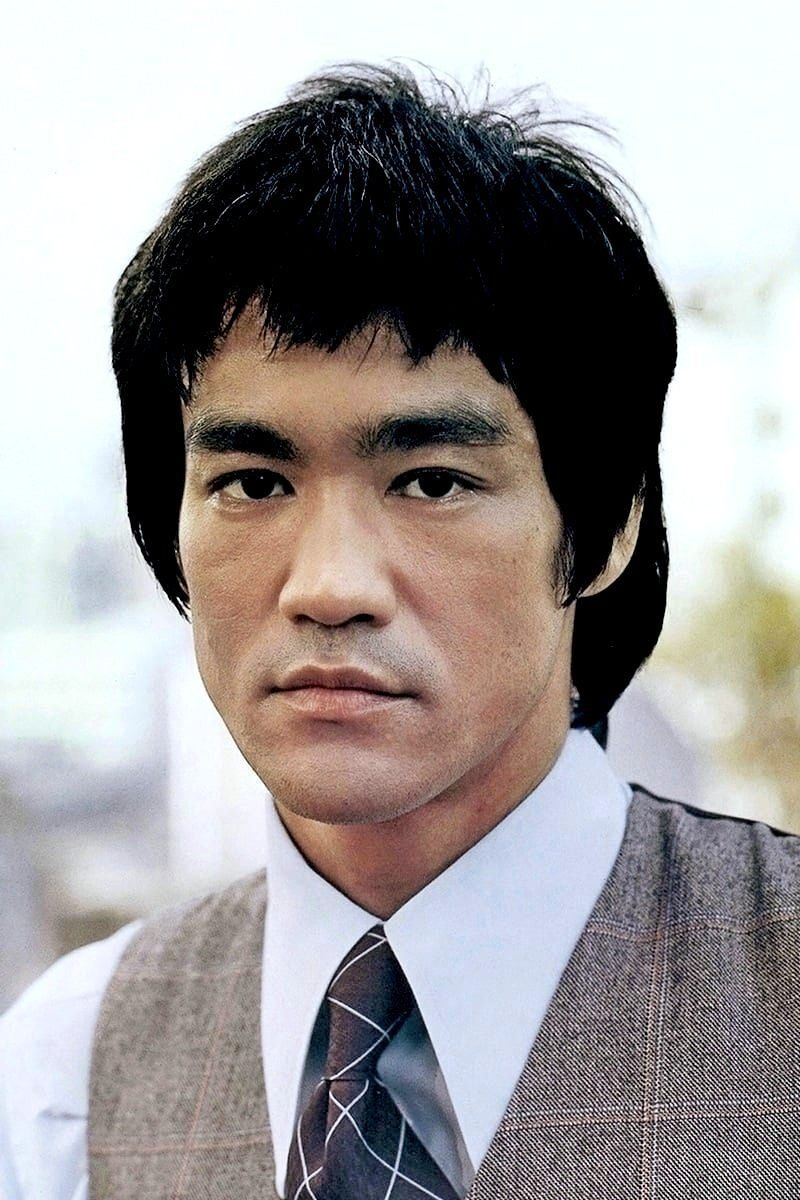
Hong Kong’s most famous son brought Chinese martial arts to Western audiences, changing action films forever. Though his life was tragically cut short in 1973, Lee’s lightning-fast moves and philosophical approach to combat made him a global phenomenon.
Films like “Enter the Dragon” showcased not just his physical prowess but his magnetic screen presence. Lee developed his own fighting style, Jeet Kune Do, rejecting rigid tradition for practical effectiveness.
More than just an action star, he challenged racial stereotypes in entertainment and opened doors for Asian performers worldwide. His famous quote “Be water, my friend” reflected his fluid approach to both martial arts and life itself.
4. Olivia Newton-John – Australia’s Sweetheart
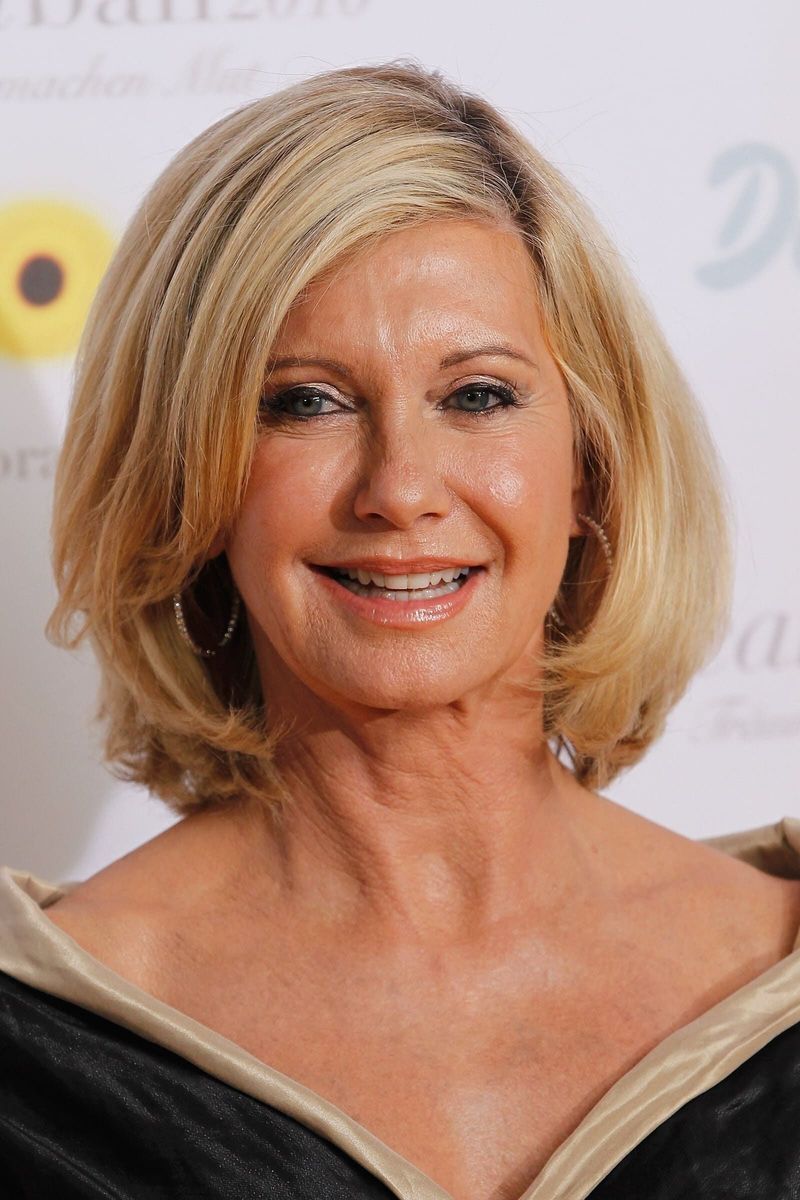
Born in England but raised in Australia, Newton-John conquered music charts with her sweet soprano voice before stealing hearts as Sandy in 1978’s “Grease.” Her transformation from innocent schoolgirl to leather-clad vixen mirrored her real-life evolution from country-pop singer to mainstream superstar.
Throughout the 70s, she collected four Grammy Awards and dominated country and pop charts alike. Songs like “I Honestly Love You” showcased her emotional depth, while “Physical” hinted at the more daring direction her career would take in the early 80s.
Her girl-next-door charm and genuine warmth made her especially beloved by fans who saw her as both relatable and aspirational.
5. Bob Marley – Reggae’s Global Ambassador
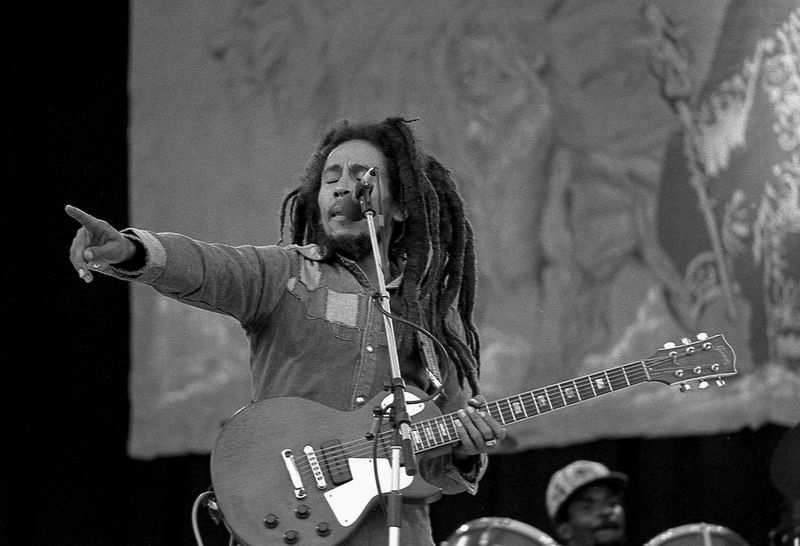
From Jamaica’s humble Trench Town rose music’s most influential reggae artist, spreading messages of peace, unity, and resistance. Marley and his band The Wailers created anthems like “No Woman, No Cry” and “Get Up, Stand Up” that transcended cultural boundaries.
His 1977 album “Exodus” spent 56 weeks on British charts, introducing millions to reggae’s hypnotic rhythms and revolutionary spirit. Despite surviving an assassination attempt in 1976, Marley continued performing and advocating for the oppressed.
His dreadlocks and Rastafarian beliefs became powerful symbols of Black pride and identity. Today, his image adorns college dorm rooms worldwide—a testament to his enduring appeal across generations.
6. Sophia Loren – Italian Cinema Royalty
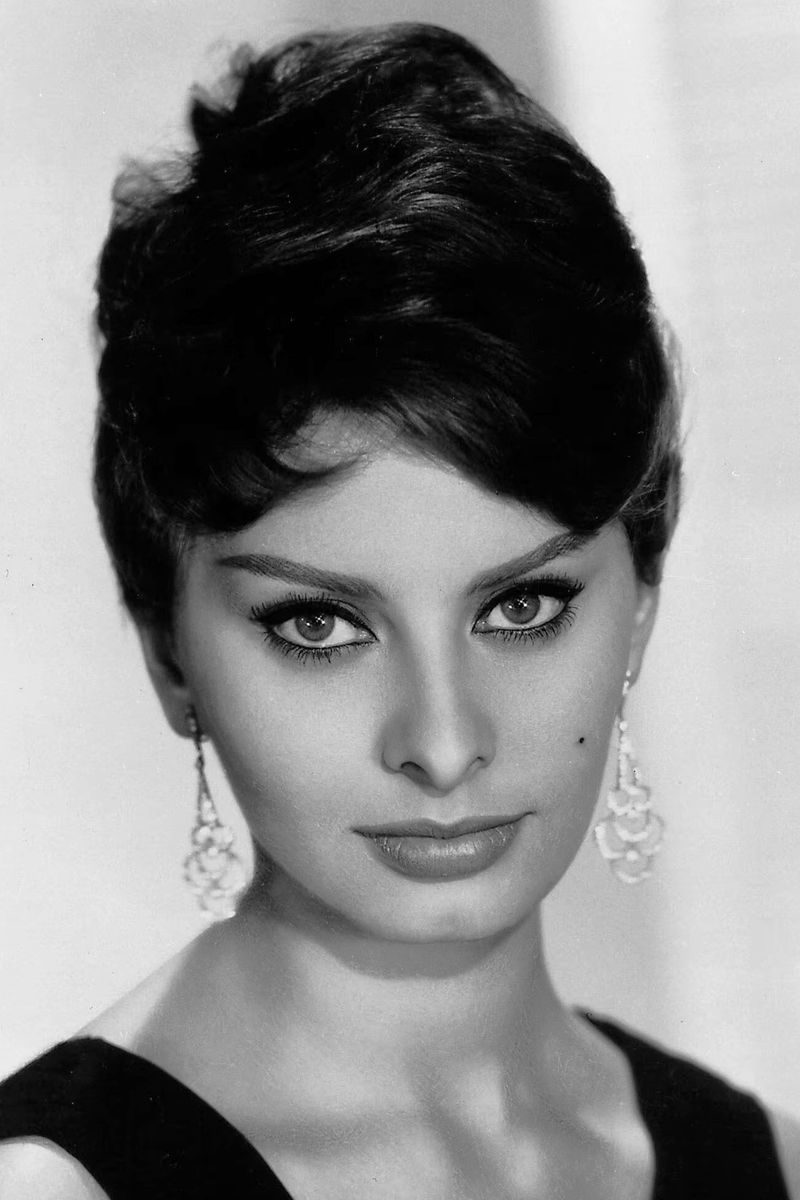
Already a star by the 1970s, this Naples-born beauty continued ruling screens with her magnetic presence and undeniable talent. Loren balanced Hollywood films with Italian productions, bringing depth and authenticity to every role.
Her Oscar-winning career reached new heights with powerful performances in “A Special Day” (1977), where she portrayed a housewife in fascist Italy. Unlike many actresses of her era, Loren embraced aging with grace, proving beauty transcends youth.
Famous for saying “Everything you see I owe to spaghetti,” she celebrated her Italian heritage rather than hiding it. Her legendary status was confirmed when she became the first actress to launch her own perfume line in 1980.
7. Fela Kuti – Afrobeat Pioneer
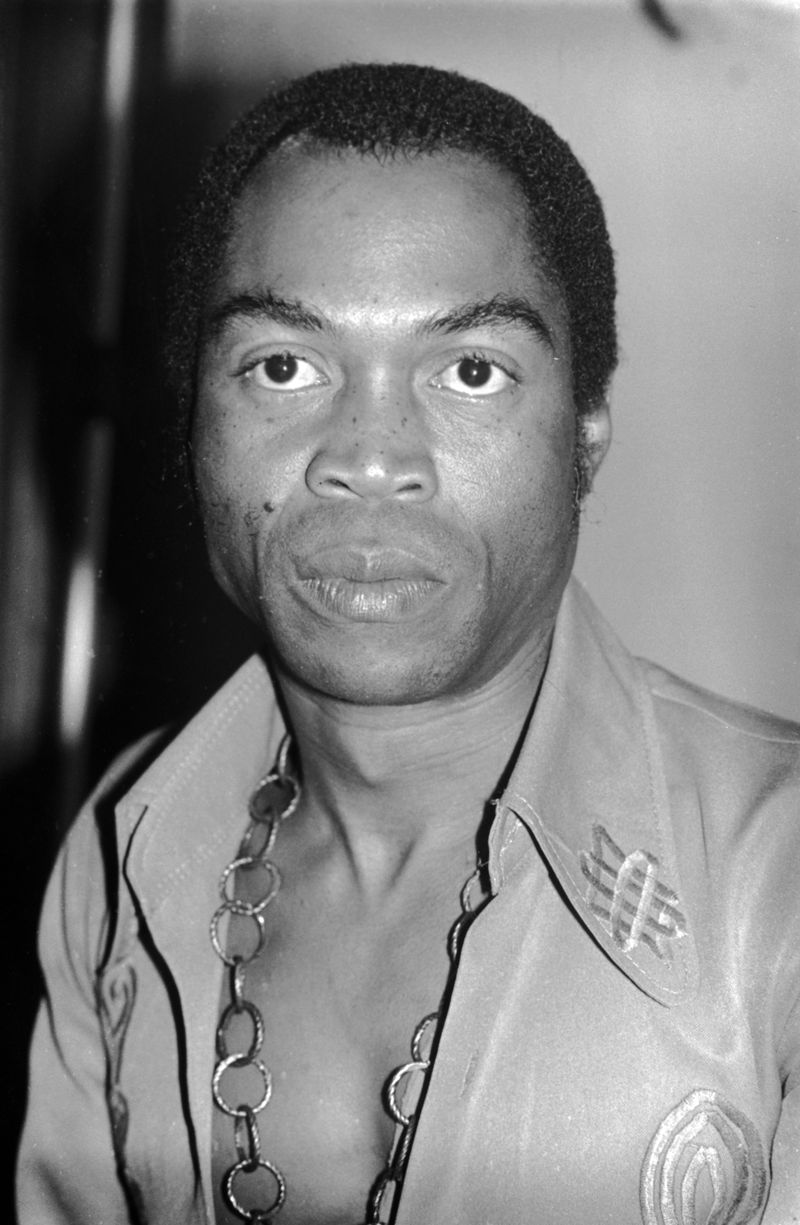
Nigeria’s musical revolutionary created Afrobeat by fusing jazz, funk, and traditional African rhythms with politically charged lyrics. His marathon performances at his Lagos nightclub, The Shrine, became legendary for their energy and defiance against government corruption.
Albums like “Zombie” (1976) directly criticized Nigeria’s military regime, leading to violent raids on his commune. Kuti’s band Africa 70 featured dozens of musicians and dancers, creating immersive musical experiences unlike anything else in the world.
A controversial figure who married 27 women in a single ceremony, Kuti embodied rebellion against colonialism and conventional thinking. His musical innovations continue influencing artists from Beyoncé to Vampire Weekend.
8. Nadia Comăneci – The Perfect Ten
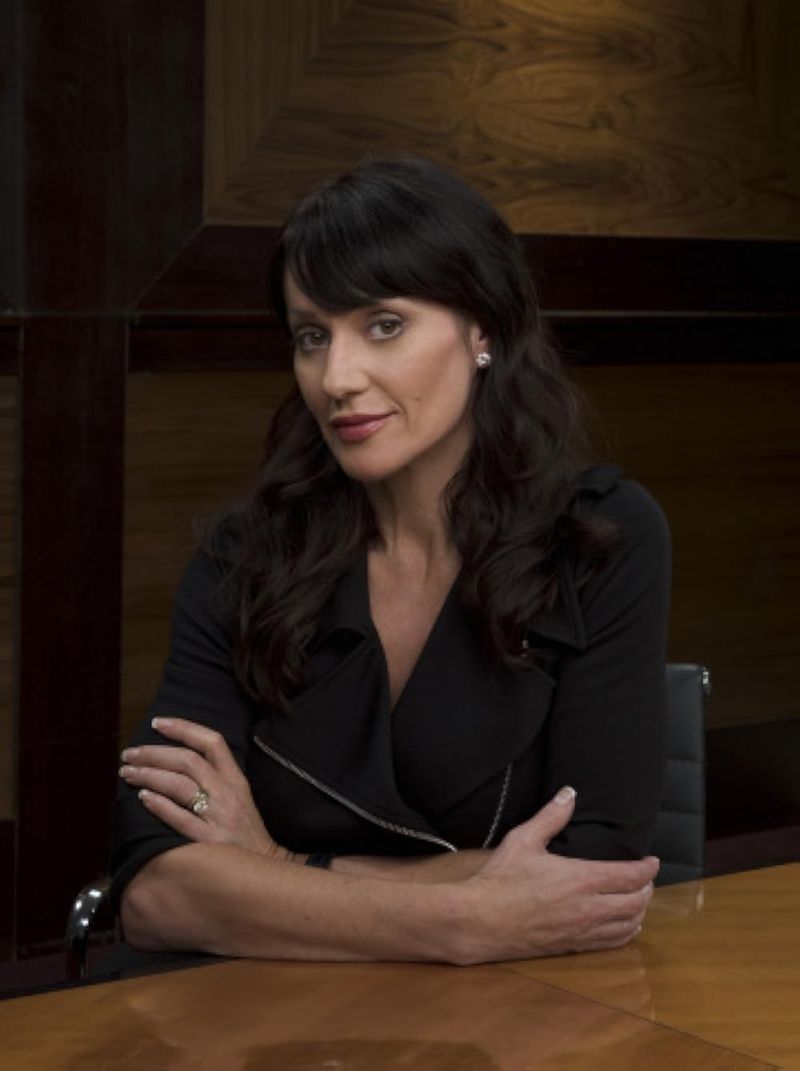
A petite Romanian gymnast rewrote sports history at the 1976 Montreal Olympics, scoring the first perfect 10 in Olympic gymnastics. The scoreboard couldn’t even display her score properly, showing 1.00 instead of 10.00 because programmers never imagined perfection was possible.
Just 14 years old, Comăneci’s flawless routines on the uneven bars captivated global audiences. She ultimately earned seven perfect scores and three gold medals at those games alone.
Training under the strict Béla Károlyi in Communist Romania, her success came through extraordinary sacrifice and determination. Her gravity-defying performances revolutionized women’s gymnastics, raising the standard for technical difficulty and artistic expression.
9. Björn Borg – Ice-Cool Tennis Champion
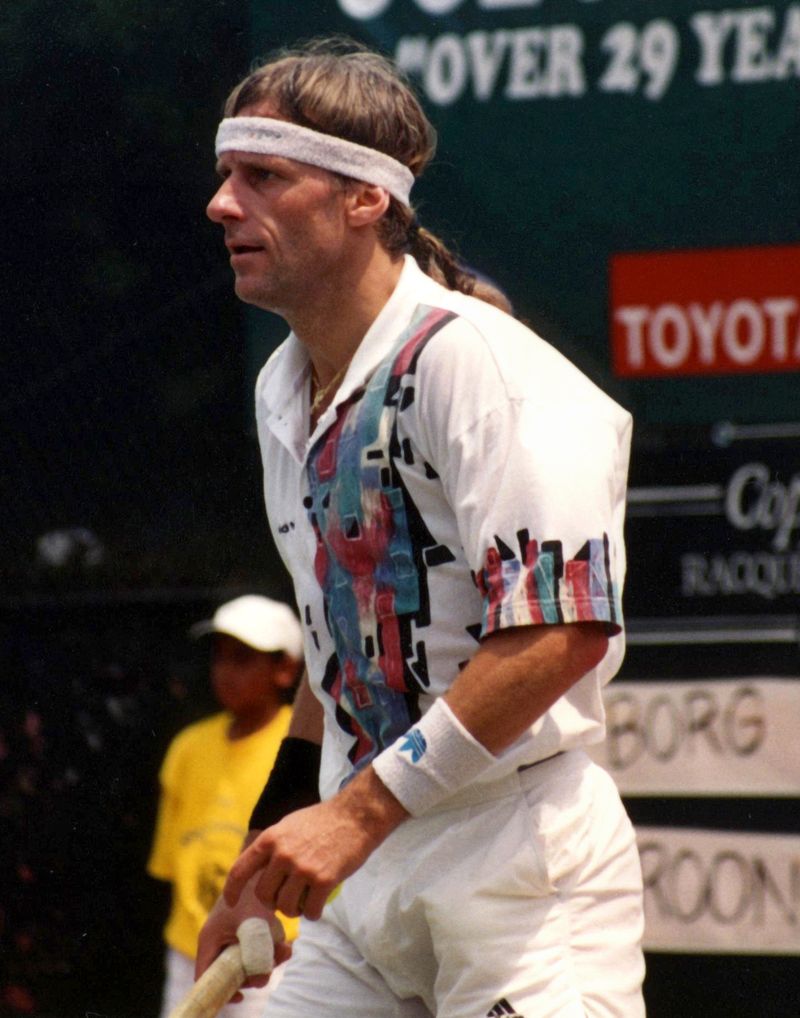
Sweden’s tennis sensation dominated Wimbledon with five consecutive championships (1976-1980), displaying remarkable composure that earned him the nickname “Ice Borg.” His rivalry with fiery American John McEnroe created one of sport’s greatest contrasts in personality and playing style.
Long-haired and headbanded, Borg’s fashionable appearance helped transform tennis from an elite pastime to a cool, accessible sport. His two-handed backhand and heavy topspin groundstrokes revolutionized how the game was played on all surfaces.
Remarkably, Borg retired at just 26, walking away at his peak. His Scandinavian reserve masked an intense competitive spirit that helped him win 11 Grand Slam titles before most players reach their prime.
10. Pelé – Football’s Global Icon
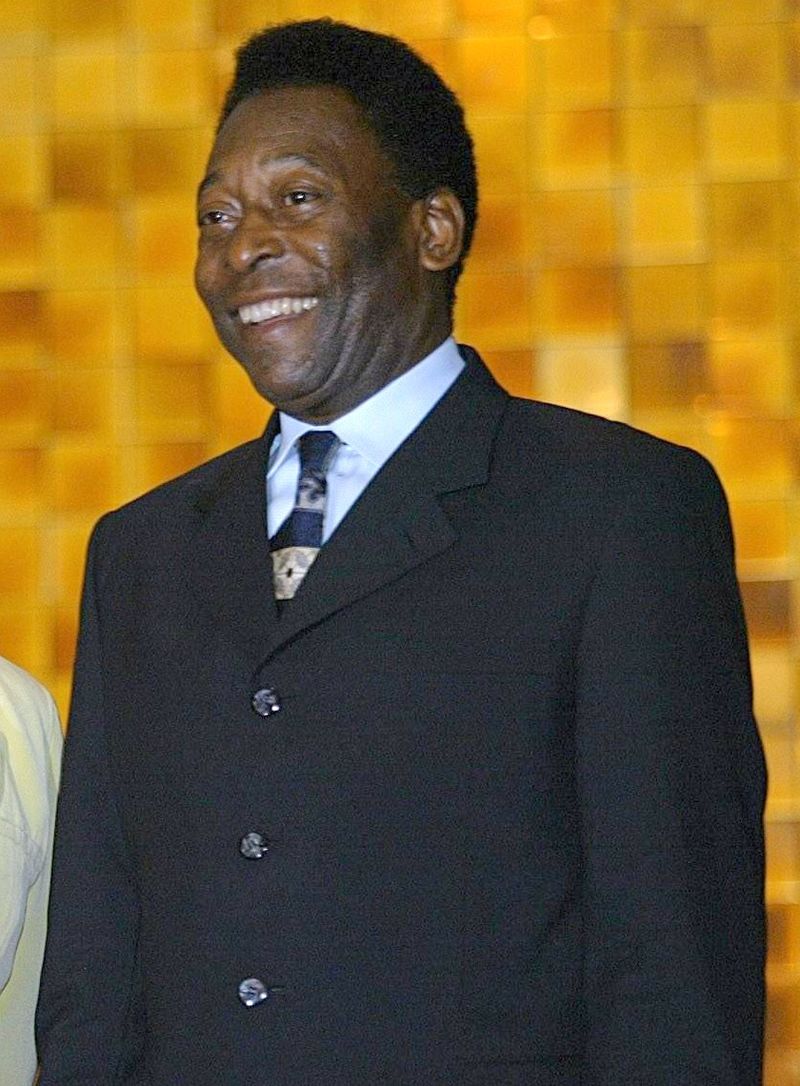
Already considered the greatest footballer ever, Brazil’s Black Pearl capped his illustrious career by bringing soccer to America with the New York Cosmos in 1975. His dazzling skills and infectious smile introduced the beautiful game to a nation that had largely ignored it.
Before joining the Cosmos, Pelé led Brazil to three World Cup victories. His 1970 World Cup performance remains the standard by which all football greatness is measured.
More than just an athlete, he became a global ambassador who transcended sport. Muhammad Ali once remarked, “Pelé is the only sports figure who surpassed the boundaries of logic.” His humanitarian work made him as respected off the pitch as on it.
11. Catherine Deneuve – French Cinema’s Ice Goddess
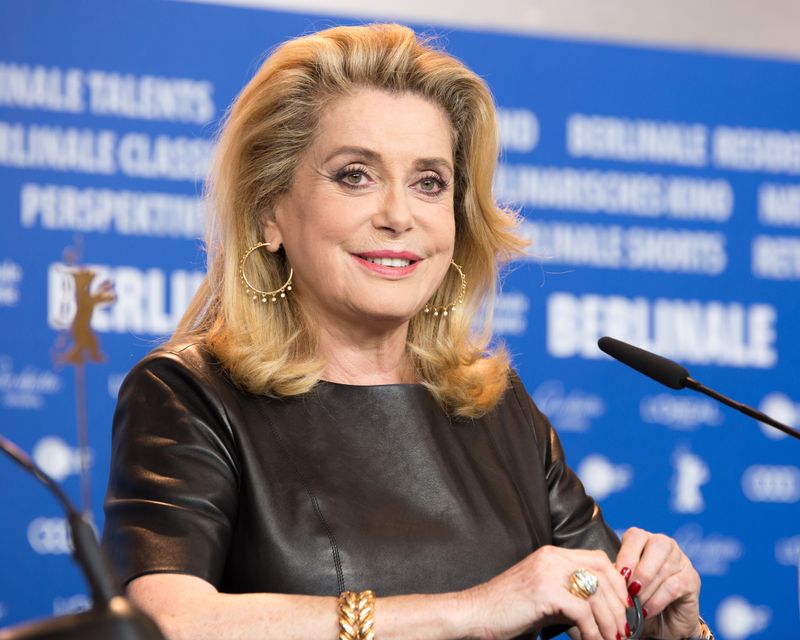
Exuding elegant Parisian cool, Deneuve personified sophisticated European cinema throughout the decade. Her collaborations with directors like François Truffaut in “The Last Metro” (1980) showcased her subtle emotional range beneath her famously composed exterior.
Beyond acting, she became a fashion icon as the face of Chanel No. 5 and inspired Yves Saint Laurent’s collections. Her pristine beauty and reserved demeanor earned her comparison to a porcelain doll, yet her film choices often revealed surprising complexity.
Unlike many contemporaries, Deneuve fearlessly tackled controversial roles exploring sexuality and desire. Her 1970s filmography includes provocative classics like “Tristana” and “Hustle,” establishing her as both art house darling and commercial star.
12. Romy Schneider – Tragic European Starlet
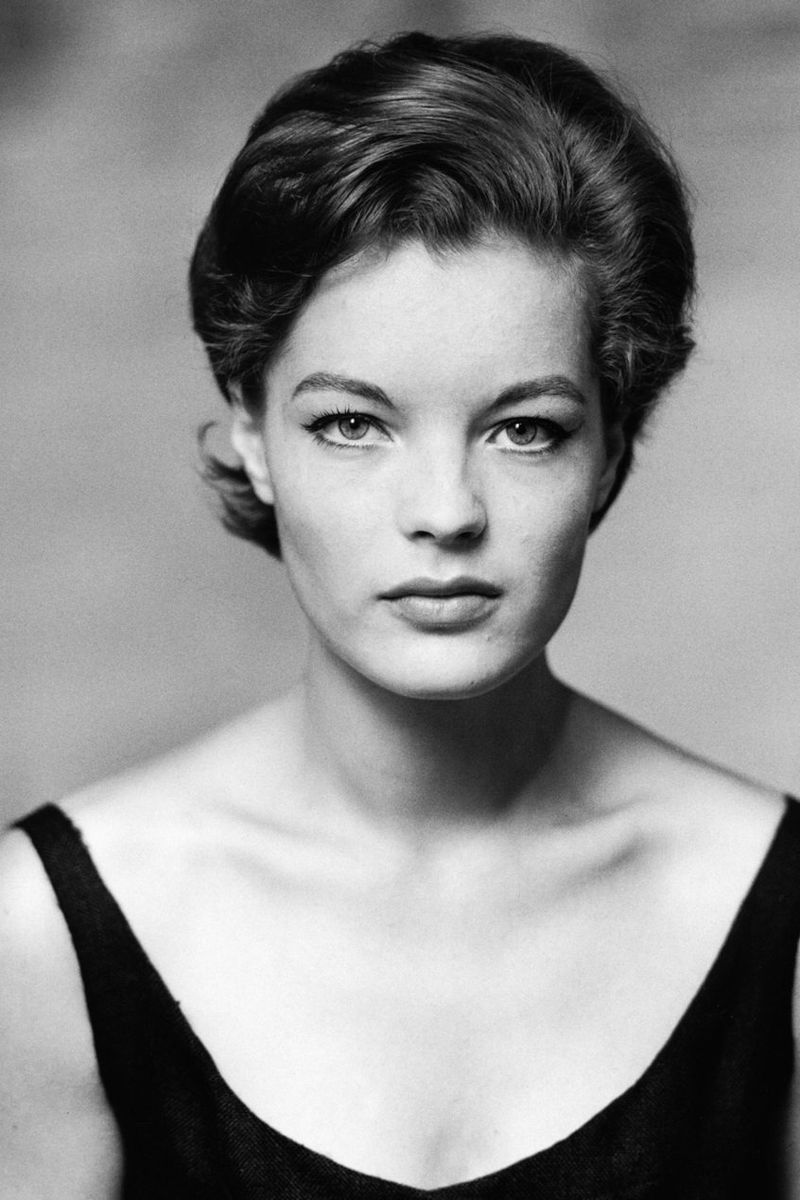
Austrian-born Schneider reinvented herself from sweet princess roles to complex, sensual characters in French cinema. Her haunting performances in films like “The Swimming Pool” (1969) and “That Most Important Thing: Love” (1975) revealed extraordinary emotional depth.
Personal tragedies shadowed her professional triumphs throughout the decade. Her divorce from actor Harry Meyen and tumultuous relationship with actor Alain Delon became fodder for European tabloids.
Director Orson Welles called her “the most important actress in Europe.” Despite her glamorous image, Schneider brought raw vulnerability to her roles that resonated deeply with audiences. Her untimely death in 1982 at age 43 cut short one of cinema’s most promising careers.
13. Alain Delon – The French Heartthrob
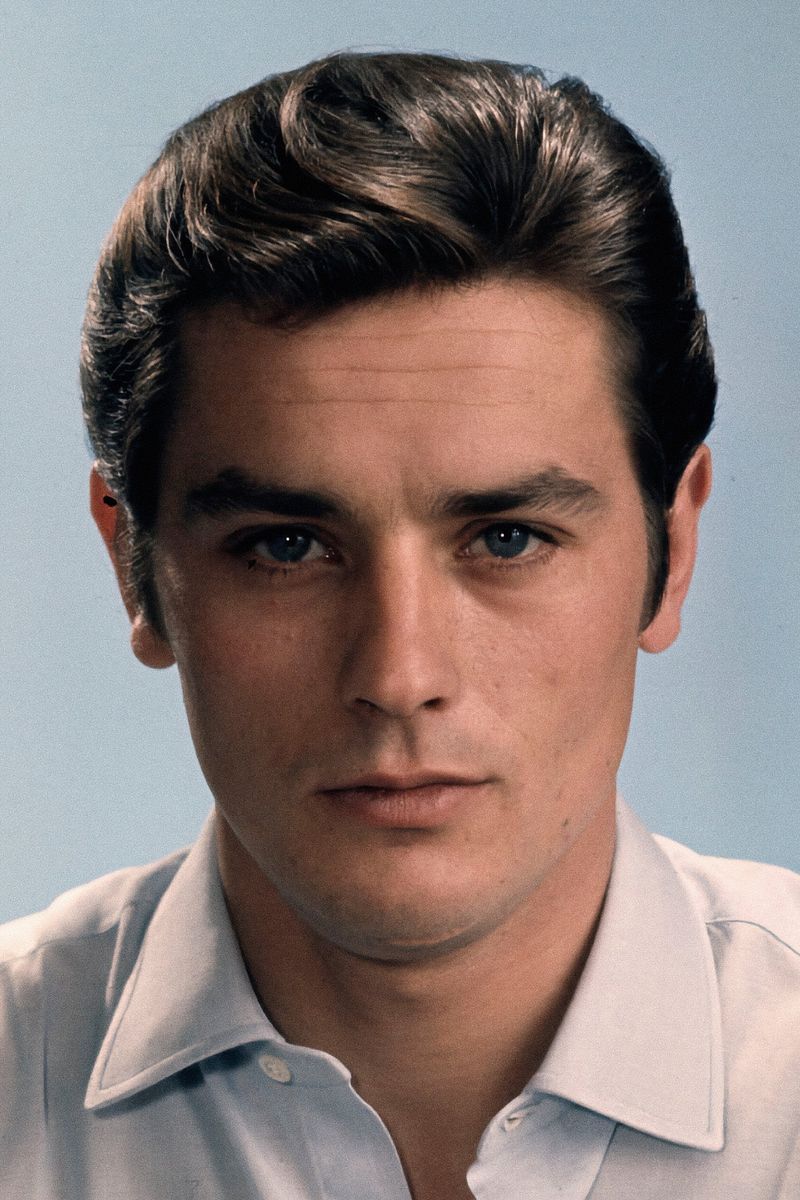
Blessed with devastating good looks, Delon transitioned from 60s pretty boy to 70s dramatic heavyweight. His intense performances in crime films like “Le Cercle Rouge” (1970) established him as France’s answer to Clint Eastwood—dangerous, magnetic, and morally complex.
Women adored him; men wanted to be him. His smoldering presence and minimalist acting style influenced generations of European actors who followed.
Off-screen, his friendship with notorious gangsters and political controversies added to his dangerous mystique. Delon launched a successful fragrance line in 1978, capitalizing on his status as the embodiment of French masculinity. His perfectionism extended to producing and directing several films throughout the decade.
14. Michael Caine – Britain’s Working-Class Hero
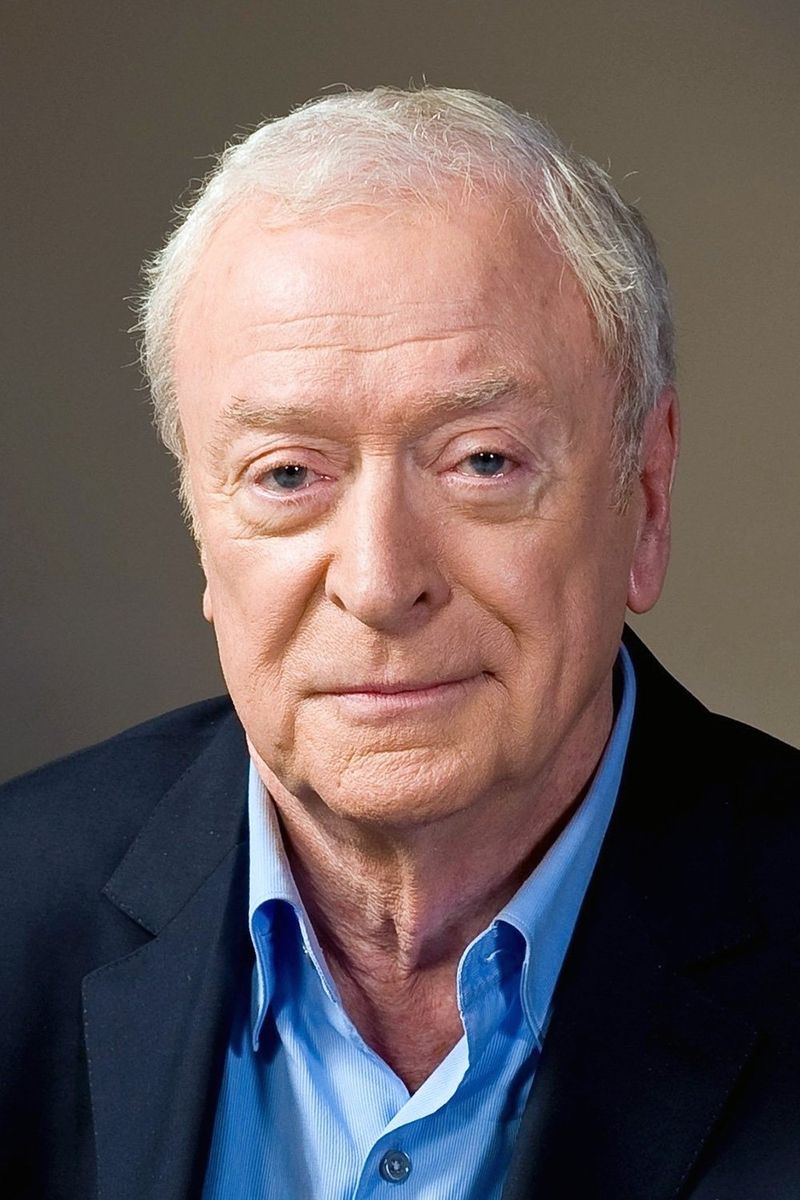
With his distinctive Cockney accent proudly intact, Caine proved working-class actors could conquer Hollywood without compromising their identity. His versatility shone through 70s classics ranging from gritty crime drama “Get Carter” to the war epic “A Bridge Too Far.”
Unlike many British actors of his generation, Caine rejected theatrical training for naturalistic performances that felt refreshingly authentic. His trademark spectacles became as iconic as his deadpan delivery.
“I’m the original bourgeois nightmare—a Cockney with intelligence and a million dollars,” he once quipped. Caine’s unpretentious approach and relentless work ethic (appearing in nearly 30 films during the decade) made him a role model for aspiring actors from humble backgrounds.
15. Julio Iglesias – Spanish Singer-Songwriter
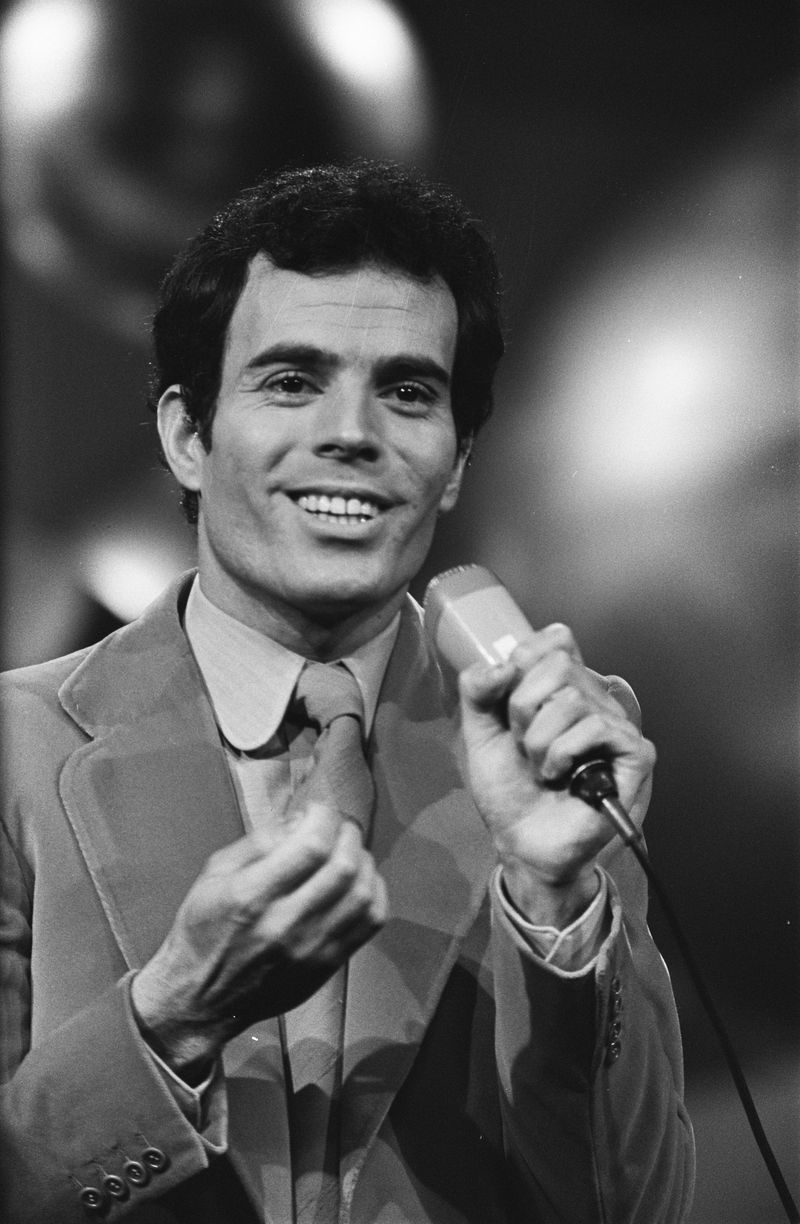
Before becoming Enrique’s father, Julio conquered Europe and Latin America with his passionate ballads and multilingual appeal. A former professional goalkeeper whose soccer career ended after a car accident, Iglesias found his true calling in romantic music.
His velvety voice and smoldering Mediterranean charm helped him sell over 100 million records during the decade. Songs like “Hey!” and “Begin the Beguine” topped charts across multiple continents.
Performing in 14 languages, Iglesias built bridges between cultures through music. His legendary status as a ladies’ man (claiming to have slept with over 3,000 women) added to his mystique. By decade’s end, he had established himself as the most commercially successful Spanish singer in history.
16. Elton John – British Pop/Rock Legend
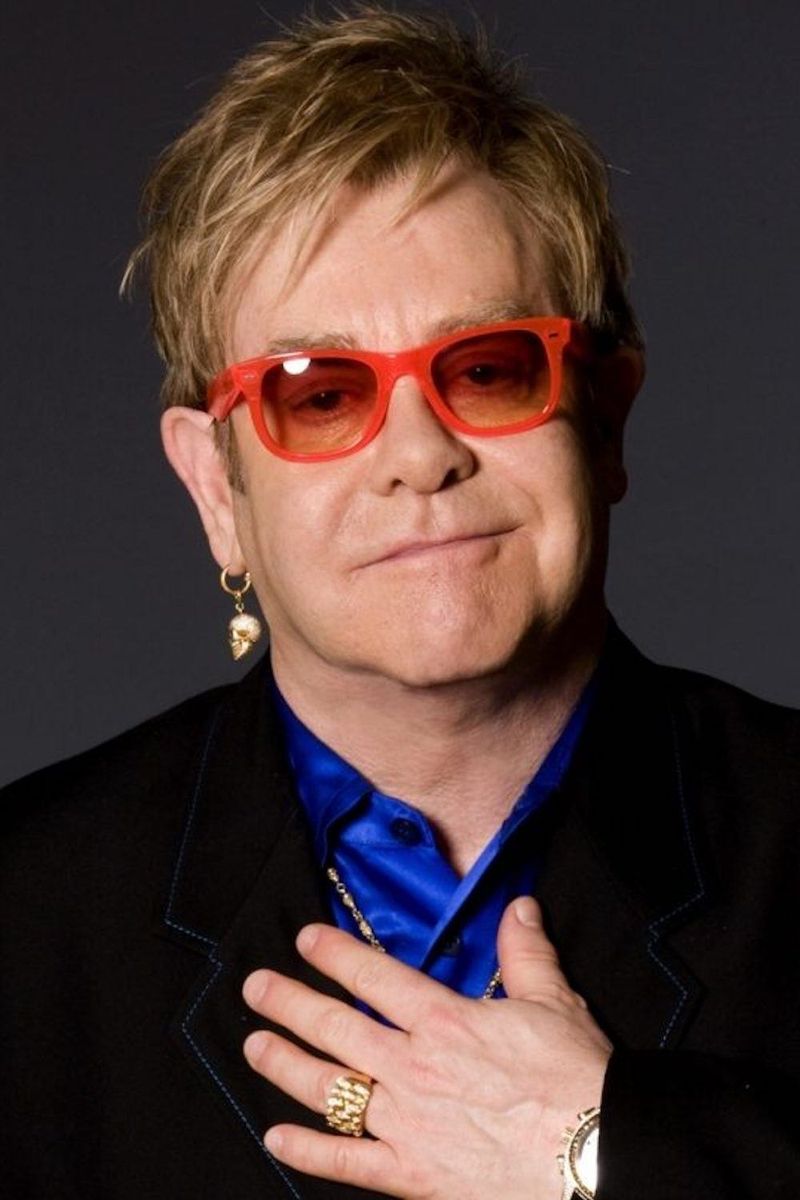
Reginald Dwight transformed into rock’s most flamboyant superstar, blending classical piano training with rock energy and theatrical showmanship. His partnership with lyricist Bernie Taupin produced seven #1 albums between 1972-1975 alone—an unprecedented creative streak.
Famous for outrageous costumes—from feathered boas to platform boots that elevated his 5’7″ frame—Elton made every performance an event. His 1975 Dodger Stadium concerts, where he performed in a sequined baseball uniform, became iconic moments in rock history.
Behind the spectacle lay genuine musical genius. Songs like “Your Song” and “Rocket Man” balanced vulnerability with radio-friendly hooks. Coming out as bisexual in 1976 (in an era far less accepting), he risked his career to live authentically.
17. Helen Reddy – Australian Voice of Feminism
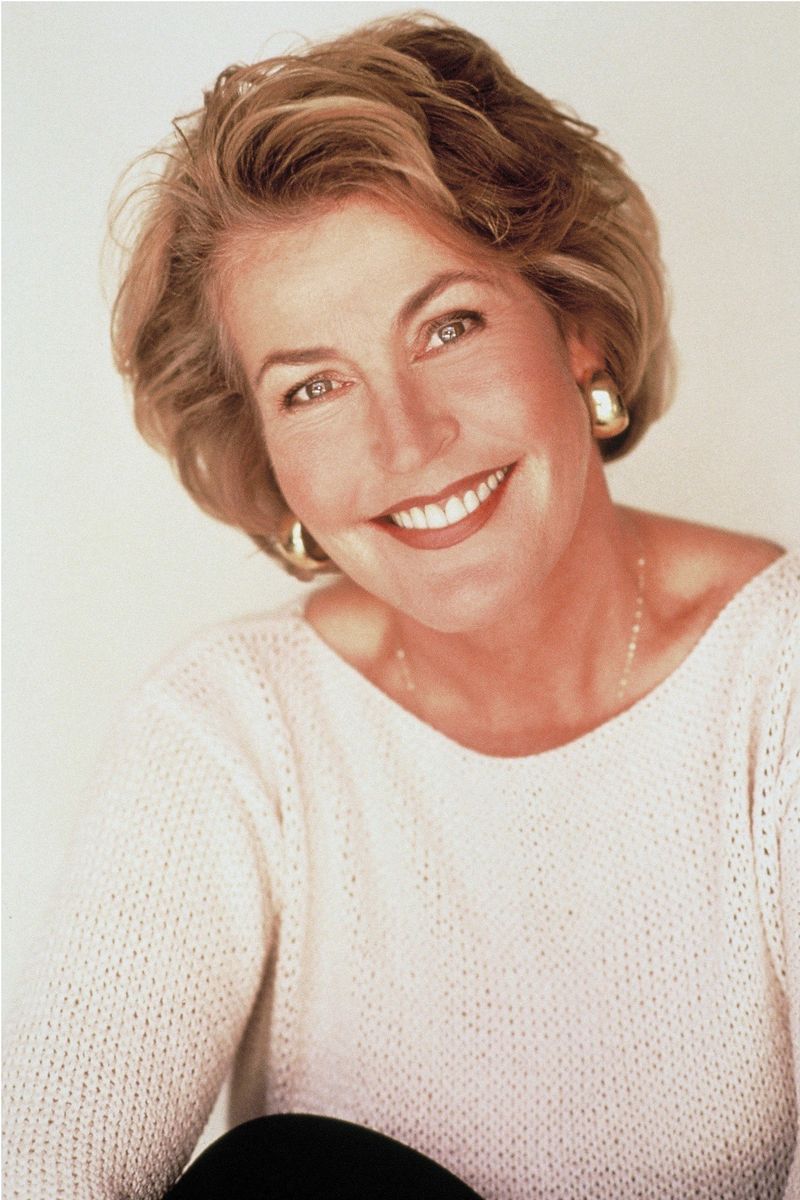
“I am woman, hear me roar”—with these words, the Melbourne-born singer created the unofficial anthem of the women’s liberation movement. Her 1972 hit “I Am Woman” topped charts worldwide and earned her a Grammy, where she famously thanked God “because She makes everything possible.”
Moving to America with just $200 to her name, Reddy overcame industry skepticism to become the world’s top-selling female vocalist in 1973. Her clear, strong voice and straightforward delivery made complex messages accessible to mainstream audiences.
Beyond her feminist anthem, Reddy scored hits with “Delta Dawn” and “Angie Baby.” Her weekly TV variety show introduced Australian talent to American viewers while challenging stereotypes about women performers.

Comments
Loading…